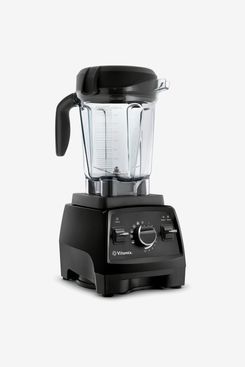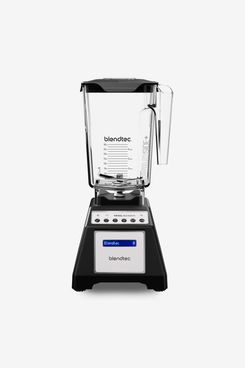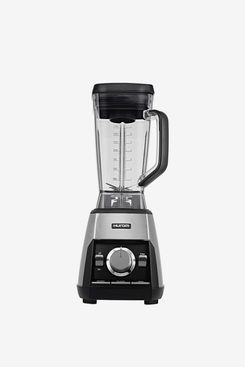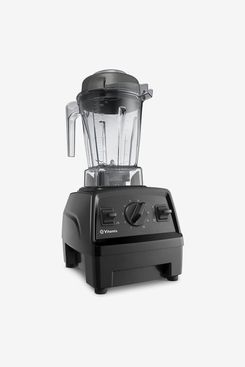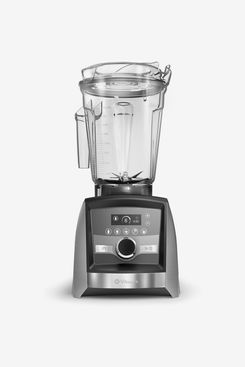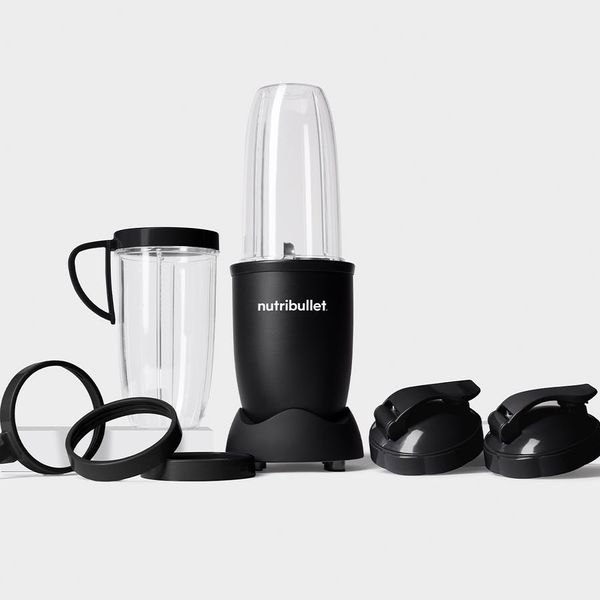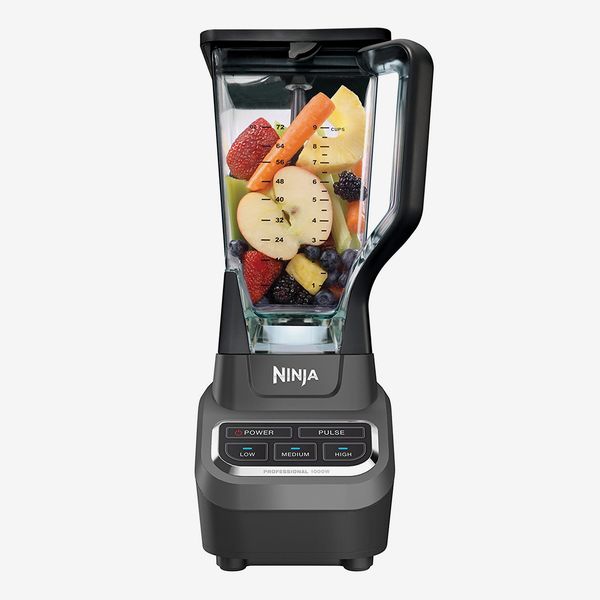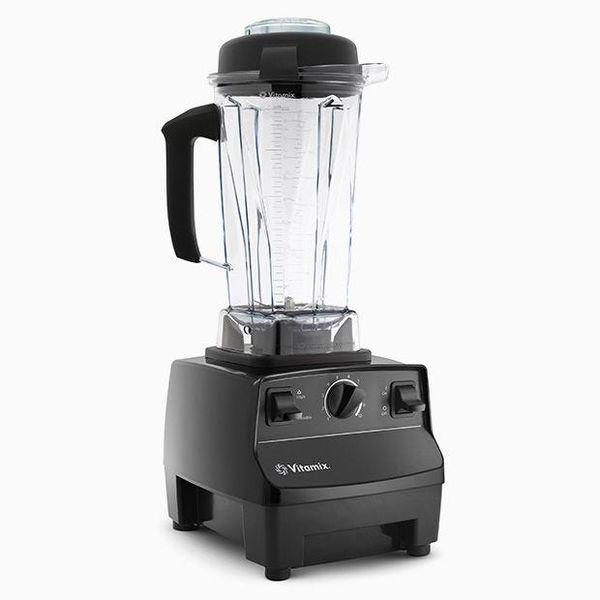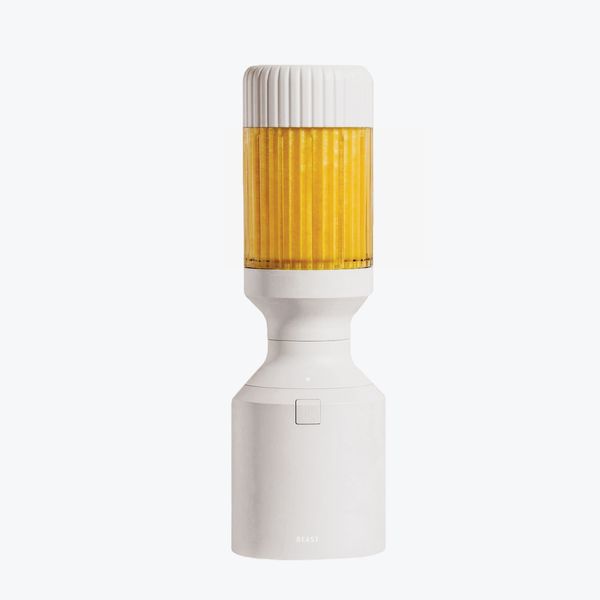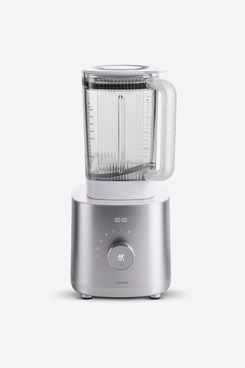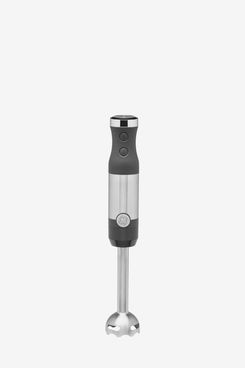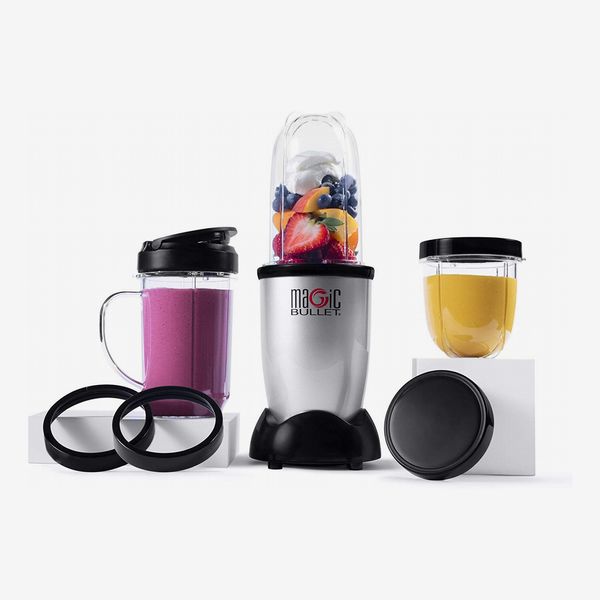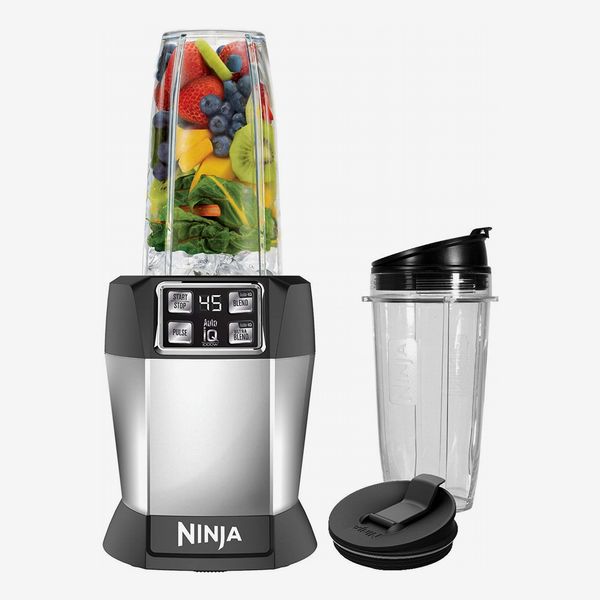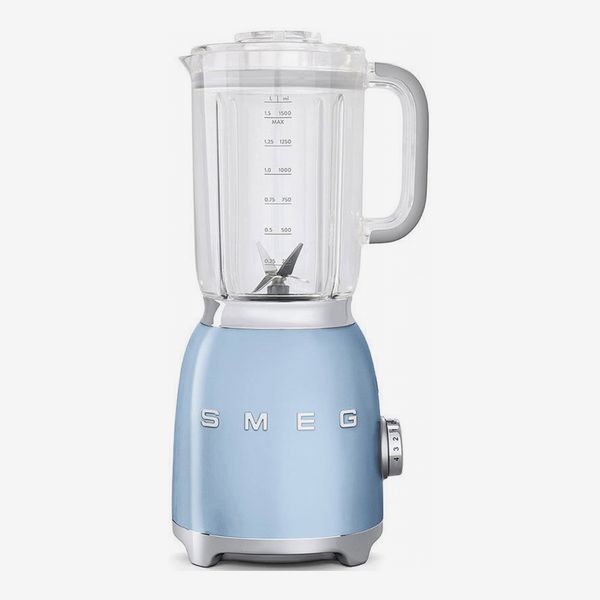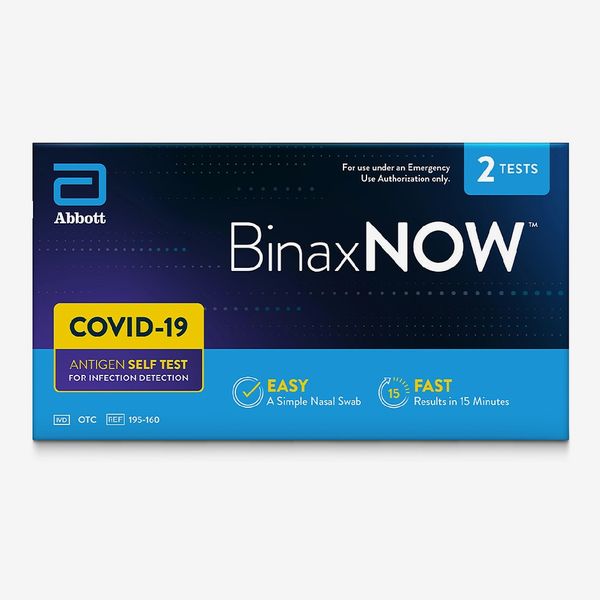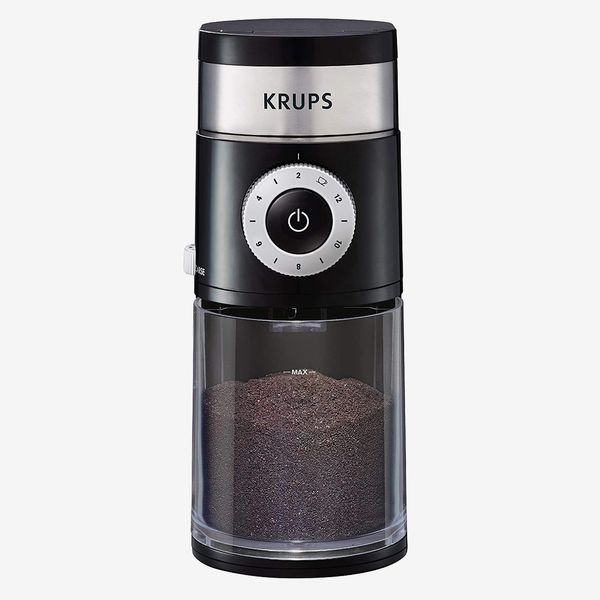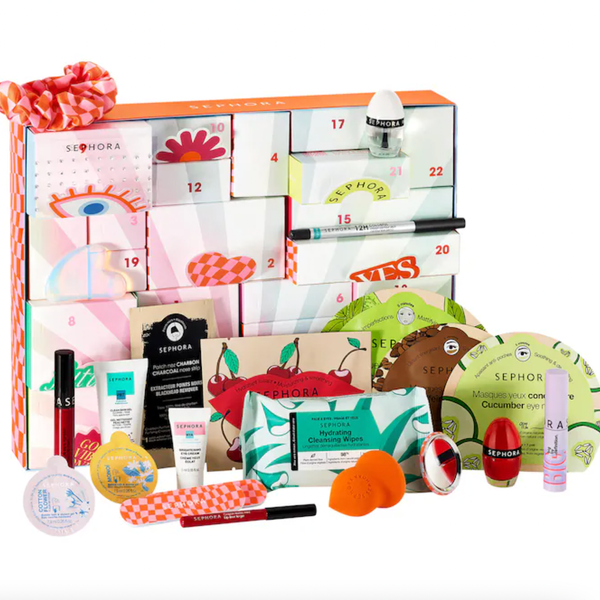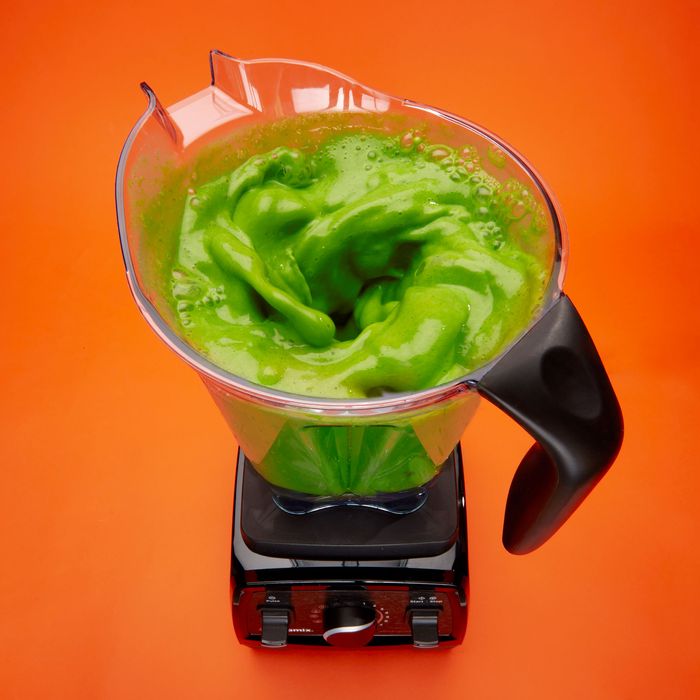
In this article
I use my blender to purée vegetables into soup, crush nuts into butter, whir dressings and sauces into silky emulsifications, and chop ingredients into salsas — and while I’m not a smoothie person, that may very well be the
No. 1 reason you want to keep one around. They’re truly so useful, as much of a staple for many people as a stove or microwave. But there are also a lot to choose from, and in an attempt to narrow down the wide and overwhelming field, I tested out a few different models and asked 18 pros and avid cooks about the ones they rely on in their own kitchens.
First thing’s first: Vitamix reigns supreme in the blender universe. Many of the people I spoke with own various models — but regardless, it is hands down the most lauded brand across the board, making the kinds of pieces that will last you an actual lifetime. That being said, if you don’t use a blender with a ton of regularity, can’t splurge on something so pricey, or are living in a small space that doesn’t accommodate big appliances, there are plenty of other options with ringing endorsements to back them up.
What we’re looking for
Capacity
For this category, I’ve listed the maximum capacity for each blender. The size you want will be determined by what you plan to use it for most (different if you primarily intend to emulsify salad dressings versus blend smoothies for a few people at a time, for example).
Function
Some blenders on this list are automatic, meaning they have pre-determined settings that allow you just to click and walk away. Others are manual, so you have to monitor the blending process the whole time.
Size
These machines can get bulky, so when choosing one, you want to make sure you’re considering where you’re going to store it and plug it in. Here, I’ve noted the exact dimensions of each model.
Best overall blender
Capacity: 64 ounces | Function: Automatic | Size: 8.5” x 8.5” x 17.25”
Vitamix has a lot of blender options. On the lowest end, there’s the Vitamix One for $250 — a no-frills-but-still-powerful option if you don’t need or want a bunch of settings, buttons, and attachments. On the higher end, there’s this model. Despite the name, it is beloved by professionals and regular cooks alike. It’s expensive, yes, but according to everyone who owns one, well worth the investment. It comes with five pre-determined settings for smoothies, hot soups, frozen desserts, purées, and a self-cleaning option (more on that below). And unlike the One, it can easily handle tougher ingredients like nuts and grains (which means it’s also extra-efficient at crushing ice for smoothies). Plus, as with all Vitamix blenders, it comes with a great warranty — something noted by Green Kitchen Stories co-founder David Frenkiel and recipe developer Sophia Roe. “If any piece of it gets run down or stops functioning properly, they take care of it,” Frenkiel says. Nisha Vora, creator of Rainbow Plant Life, points out that you can buy additional compatible parts, too. “It comes with a 64-ounce container, but a few months ago I got a 32-ounce one, too, to make things like curry paste and hummus without having to triple the volume.” Finally, it’s got a lower profile than many, able to sit underneath most regular kitchen cabinets.
“This blender is industry standard and used across most professional kitchens. When I was head of product at Daily Harvest, I used it every day for research and development,” says Jessica Young, former fine-dining chef and founder and current CEO of Bubble. Moon Juice founder Amanda Chantal Bacon employs the Vitamix at her shops but has one at home as well. “I love using it because of its ability to whip air into ice cream or tonics or even coconut milk — it gives the fluffiest mouthfeel that no other blender can replicate,” she says. Nutritionist and wellness coach Molly Alliman told us she uses hers “every single day” and that “it works for blending big chunks of frozen fruits, heartier vegetables like kale, whole nuts, and anything else that would leave chunks in other blenders.” Strategist senior editor Winnie Yang has owned hers for nearly a decade and uses it a couple of times a month, mostly for puréed soups, because of the supremely smooth consistency she gets from the blades. Jewish Food Society founder Naama Shefi turns to her 750 for pasta sauces, among other things. “It’s a great way to sneak in protein like almonds for my kid because it blends right in,” she says. And while I’ve been testing one for a relatively short time, I can see with even a handful of uses what all the hype is about. It’s powerful, making quick work of hummus, broccoli-cheddar soup, and a big-batch salad dressing to keep in the fridge all week.
And the self-cleaning option really works. You simply add a drop of soap and some water, the machine whirs for about a minute, and then you rinse it out. One of my biggest hesitations with adding appliances to my kitchen is the space they take up, including in the sink and dishwasher. But this function means as soon as I’m done, it’s a breeze to wash and put away. Vora says her old blender always dried with water spots, but this one has stayed untarnished in the year since she bought it.
Best less expensive blender
Capacity: 36 ounces | Function: Automatic | Size: 8” x 7” x 15”
After testing this blender, I was surprised to find it was just as powerful and felt just as durably built as the Vitamix 750. I used to make a sungold tomato sauce to freeze for winter and after blending on high for about two minutes, it was silky smooth, with absolutely no bits of skins or seeds. It also has a pulse setting I used for foods with a chunkier consistency, like a Swiss-chard pesto. The blades broke down the firm leafy greens — but not so much that they turned to pure liquid. To be clear, the Vitamix does have its perks: a longer warranty, more speeds, a dial instead of a touchscreen (simply a personal preference for me). But the Blendtec is undeniably strong and $206 cheaper.
It comes enthusiastically endorsed by Christine Sahadi, owner of New York City’s Middle Eastern market and restaurant Sahadi’s, too. She told me about it for this story a while back, noting in our interview that both Blendtec and Vitamix make very good quality units. “I just personally like the Blendtec,” she says. She has owned hers for more than a decade and finds that its super-powerful blades, which operate at five preset speeds, emulsify sauces, dressings, and aïoli handily. It also, perhaps most importantly for Sahadi, makes the perfect hummus. “If you don’t have a really good blender, you have to add a lot of ice water or cooking liquid to help smooth things out,” she explains. “By the time you get there, the hummus has become too drippy.” The Blendtec, it’s important to note, has just a bit more than half the capacity of the Vitamix 750, so you won’t be able to make things in quite as big batches.
Best even less expensive blender
Capacity: 68 ounces | Function: Automatic | Size: 17” x 13” x 9”
If you want a high-speed blender on the larger side — and one that’s less expensive than both the Vitamix 750 and the Blendtec — Strategist writer Kat Gillespie recommends this Hurom. She notes the plastic container’s sturdiness and says the base “has a nice weight to it,” though she warns that the appliance is definitely “pretty hefty and takes up space.” The machine has both automatic controls (for smoothies, ice crushing, and soup) and manual ones; Gillespie uses hers mostly for smoothies. “It makes the perfect consistency — very smooth, no lumps, even if you don’t measure out a good ratio of liquids to solids — and is very convenient as you go about your morning and do other things,” she says, referring to the automatic button you can simply press and walk away from.
Best manual blender
Capacity: 48 ounces | Function: Manual | Size: 11” x 8” x 18”
A more affordable Vitamix model is this Explorian Series E310. If you don’t care about the automatic settings on the 750 or the smaller container size of this one, Ksenia Avdulova, founder of Breakfast Criminals, says it’s a sure bet, even with daily use. “I personally prefer the manual switch experience versus touchscreen,” she says. Culinary artist Maryah Ananda, who uses her E310 every day, says the manual switches allow her to pulse to control texture if she wants a chunkier soup or sauce. Still, if she wants seamless emulsification, “the strength is unmatched,” she says. “Blending down things that are very fibrous like ginger or galangal can be tough, but this Vitamix makes it so easy.” She also says she appreciates that unlike some cheaper blenders she’s used in the past, food doesn’t get stuck in the nooks and crannies of this one, which has a dishwasher-safe basin.
Best blender with touchscreen
Capacity: 64 ounces | Function: Automatic | Size: 11” x 8” x 17”
On the other end of the Vitamix spectrum, with even more adjustability and customization than the 750, is the A3500 Ascent Series model. This one comes recommended by Gaby Dalkin, the cookbook author and blogger behind What’s Gaby Cooking (she used to own and love the 750, but as someone who uses a blender multiple times a day for recipe testing, she has since upgraded to this version). She’s a particular fan of the touchscreen, which boasts a timer display that you can also set to blend for exactly the amount of time you want before it automatically shuts off. (Brandon Jew, chef and owner of Mister Jiu’s in San Francisco, has also told us that he loves this particular feature, along with the “great” auto functions.) Dalkin says the A3500 is even easy enough for her toddler to turn on, allowing her to help make smoothies and “feel invested in the process.”
Best small blender
Capacity: 32 ounces | Function: Manual | Size: 8” x 12” x 16”
Strategist managing editor Kelsie Schrader bought the Nutribullet Pro 900 two months ago as an upgrade from the more basic model she had used before (more on that below). While she says the original worked well, she has noticed that this new one is more powerful. “It blends a bit faster and more thoroughly than the 600-watt one did,” she says of the 900-watt machine. “I can load it up with fruit and all my other ingredients, and it’s perfectly smooth in less than a minute. I’ve probably made over 60 smoothies, and it hasn’t slowed down at all.” Her favorite feature is the matte-black design (the blender comes in nine matte colors and seven metallics), which she says is a nicer finish than her previous gray one and “never looks streaky or dirty.”
The Nutribullet Personal Blender Schrader owned before costs $42 less. It’s smaller (it comes with 24- and 18-ounce cups) and runs on a lower wattage but otherwise works exactly the same. Bacon is a fan, calling it “the mightiest little blender.” Caitlin Sullivan, co-founder of Los Angeles restaurant Honey Hi agrees, saying “it’s affordable, so compact, and easy to clean — but it still has great blending ability.”
Best large blender
Capacity: 72 ounces | Function: Manual | Size: 18” x 12” x 13”
Conversely, this Ninja is very big — not to mention the cheapest full-size option on this list. With 1,000 watts of power, it’s particularly great for juice- and smoothie-making, with an extra-large 72-ounce plastic pitcher and blades that easily crush ice and liquefy frozen fruits and vegetables. New York deputy editor Alexis Swerdloff has one and loves it. “This thing is powerful,” she says. “It’s super-easy to use and to clean.”
Best blender for smoothies
Capacity: 64 ounces | Function: Manual | Size: 20.5” x 8.75” x 7.25”
The First Mess’s Laura Wright swears that the Vitamix 5200 model makes the best smoothies. And she should know — not only does the writer and recipe developer make the drink every single day, but she’s tried a good handful of other machines before (Vitamixes and non-Vitamixes alike) for that job specifically. “They always come out thinner, or with foam or bubbles,” she says. “It’s almost like the blades are too powerful on some of the newer Vitamixes.” Her 5200, on the other hand, creates the optimal thick-and-creamy texture — and has done so even after a decade of use.
Best quiet blender
Capacity: 25 ounces | Function: Manual | Size: 4.9” x 4.9” x 15.75”
Former Strategist associate editor Louis Cheslaw was sent the Beast Blender last spring and has been turning out protein shakes consistently ever since. “Unlike the Ninja blender I was using before, it’s quiet enough that I feel comfortable using it at all hours of the day,” he says. “And even then, it’s so powerful that I rarely have it going for more than ten seconds. And while this is slightly less critical, it’s also incredibly pleasant in your hands — from the stately fluting on the portable, rinsable glass vessels to the magnetic lock when you connect it to the engine.” (For what it’s worth, Halle Berry is also a big fan.)
Most stylish blender
Capacity: 61 ounces | Function: Automatic | Size: 7.6” x 7.6” x 16.7
Zwilling’s full-size blender is one of the sleekest looking on the market. For a generally bulky product, it has clean lines and a satisfyingly geometric shape with a chic fluted design on the jar. It’s not all in the appearance, though: In the nine months I’ve been using it, it’s performed beautifully. The pre-programmed settings are nice to have (recently, I’ve been making use of the frozen cocktail one and am also a fan of the wash button). But you can also manually control the blades with a turn of the dial and a push of the button — this feature lets me keep an eye on consistency as I go so my emulsified dips get to the exact texture I want.
Best immersion blender
Capcity: Various | Function: Manual | Size: 3” x 4.5” x 15.3”
Although the functionality of an immersion blender is different, “for me, this is the best one — and the best blender in general,” says Richard Rea, the executive chef at the Butcher’s Daughter, who has been using one at home and one in his professional kitchen for several years. “Quite frankly, whenever people ask me what blender to use, I always push them toward this.” His reasoning is that it takes up much less space and is usually much less expensive while still doing everything you need. Indeed, Rea uses his for creamy soups, cashew ricotta, hummus, and all types of salsa. “It’s very strong,” he says of its powerful motor and sharp blades. “It breaks through nuts, and even some big, bulky blenders don’t do that.”
Some more blenders we’ve written about
Our experts
• Molly Alliman, nutritionist and wellness coach
• Maryah Ananda, culinary artist
• Ksenia Avdulova, founder of Breakfast Criminals
• Amanda Chantal Bacon, founder of Moon Juice
• Louis Cheslaw, former Strategist associate editor
• Gaby Dalkin, cookbook author and blogger at What’s Gaby Cooking
• David Frenkiel, co-founder of Green Kitchen Stories
• Kat Gillespie, Strategist writer
• Richard Rea, executive chef at The Butcher’s Daughter
• Sophia Roe, recipe developer
• Christine Sahadi, owner of Sahadi’s
• Kelsie Schrader, Strategist managing editor
• Naama Shefi, founder of Jewish Food Society
• Caitlin Sullivan, co-founder of Honey Hi
• Alexis Swerdloff, New York deputy editor
• Nisha Vora, creator of Rainbow Plant Life
• Laura Wright, author of The First Mess
• Jessica Young, founder and CEO of Bubble
The Strategist is designed to surface the most useful, expert recommendations for things to buy across the vast e-commerce landscape. Some of our latest conquests include the best dining-room décor items, coffeemakers, knife sets, Japanese coffee brewer, charcoal water filter, drinking glasses for water, and more. We update links when possible, but note that deals can expire and all prices are subject to change.
Every editorial product is independently selected. If you buy something through our links, New York may earn an affiliate commission.

